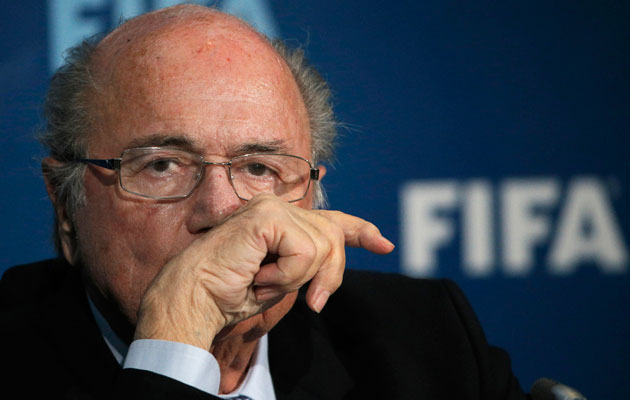Sepp Blatter is heading for Thursday’s Asian confederation congress probably reflecting, after the Olympic family squabbles at SportAccord last week, that FIFA can seem positively passive at times.
Blatter, on behalf of the world federation, was one of the first signatories of a letter of dissent after the outspoken verbal assault on the IOC establishment by Marius Vizer, Romanian president of both SportAccord (which comprises Olympic and non-Olympic sports) and the international judo federation.
The Olympic future of Blatter has become the subject of speculation and conjecture as he approaches his likely re-election next month at the head of world football for a further four years. The reason is that next March Blatter will be 80 and that means enforced retirement from the International Olympic Committee.
Blatter is a member of the IOC in his own right, not because he heads up the governing body of the world’s most popular sport. However, this has played to his advantage. He would have had to retire from the IOC on reaching 70 in 2006 had he been an ‘ordinary’ member. But heads of federations have a dispensation to buck the rule for a further decade.
At 80, however, the statutes brook no argument: Blatter’s retirement must be enforced (unlike, of course, at FIFA).
He will not be lost to the Olympic family. No-one in the movement has any doubt that IOC president Thomas Bach (like Blatter a protégé of the late Adidas puppet-master Horst Dassler) will propose his old friend and ally as an honorary member so he can retain all the privileges of an Olympic grandee.
Also, of course, assuming he is re-elected by FIFA Congress, Blatter will remain a highly influential figure in and around the Olympics.
Two members of his FIFA executive committee are also IOC members: Issa Hayatou, the Cameroonian president of the African confederation and who is FIFA’s senior vice-president, and Burundi’s Lydia Nsekera. It is likely that, after this comng week’s Asian confederation elections, influential Kuwaiti Sheikh Ahmad Al-Fahad Al-Sabah will be a third with a foot in both camps.
None of them, with a vote, will rival the worldwide sporting influence of Blatter without a vote.
In any case IOC members (apart from on their own internal business) vote with significance only once every two years. This is when they choose the host of the summer and the winter Olympic Games and football does not feature in the latter.
Blatter, it might be argued, will be a more significant Olympic figure than ever before at the Rio de Janeiro Games next year. This is because Olympic football, rather than being a crowd-puller on the periphery of the main event, will assume a central role for host nation Brazil.
Brazil do not expect to win many medals but the nation demands that their footballers carry off the one international prize always beyond them: Olympic football gold.
More, Neymar & Co will not only be expected to win but to win in style to make amends to their fans (and restore their battered image) after the 7-1 shame inflicted by Germany in last year’s World Cup semi-final in Belo Horizonte.
Blatter will be in his element and, this time, he need not be the butt of every protester either.







